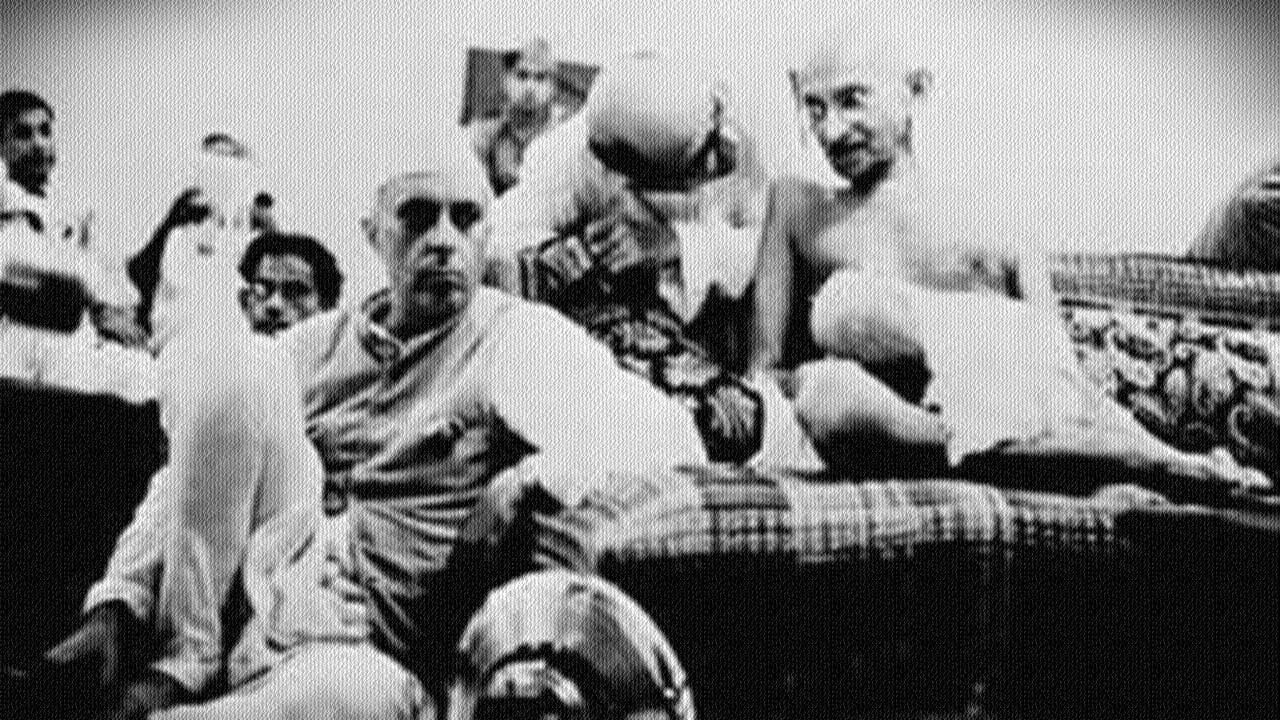Quit India Movement Day: The movement was based on Gandhian principles of nonviolence and civil disobedience. However, despite its nonviolent nature, it posed a severe challenge to British governance as it disrupted the normal functioning of administrative institutions

Mahatma Gandhi sits with Jawaharlal Nehru, during the Congress Party meeting in Bombay (now Mumbai) at the Gowalia Tank also known as August Kranti Maidan on August 9, 1942
The Quit India Movement was a significant civil disobedience movement launched by Mahatma Gandhi and the Indian National Congress in 1942 during India's struggle for independence from British rule. Viceroy Linlithgow's remark about it being "the most serious rebellion since 1857" refers to the gravity and scale of the movement, which posed a substantial challenge to British authority in India. Several factors contributed to this assessment:
ADVERTISEMENT
Mass Participation: The Quit India Movement witnessed massive popular participation from all sections of Indian society. People from various regions, classes, and religions came together to demand immediate independence from British rule. The scale and intensity of the protests were unparalleled since the 1857 Indian Rebellion against British colonial rule.
Nonviolent Civil Disobedience: The movement was based on Gandhian principles of nonviolence and civil disobedience. However, despite its nonviolent nature, it posed a severe challenge to British governance as it disrupted the normal functioning of administrative institutions and caused widespread civil unrest.
Repression and Mass Arrests: In response to the movement, the British authorities launched a massive crackdown, arresting thousands of Congress leaders and activists. Prominent leaders, including Mahatma Gandhi, Jawaharlal Nehru, and Maulana Abul Kalam Azad, were arrested, which led to a leadership crisis in the movement.
Disrupting War Efforts: The Quit India Movement took place during World War II when Britain was heavily involved in fighting the war. The movement's protests and strikes caused disruptions to British war efforts in India, making it a serious concern for the colonial administration.
Growing Nationalist Sentiment: By 1942, Indian nationalism had gained significant momentum. The demands for independence were stronger than ever, and the Quit India Movement reflected the rising tide of anti-colonial sentiment in the country.
Widespread Unrest: The movement sparked large-scale protests and civil disobedience across India. Government offices, railways, telegraph lines, and other symbols of British authority were targeted by protesters, leading to considerable unrest and instability.
Due to these factors, Viceroy Linlithgow recognized the Quit India Movement as the most serious challenge to British rule in India since the 1857 rebellion. Although the movement was eventually suppressed, it marked a crucial phase in India's struggle for independence and played a significant role in shaping the future of the nation.
 Subscribe today by clicking the link and stay updated with the latest news!" Click here!
Subscribe today by clicking the link and stay updated with the latest news!" Click here!







